A few weeks ago, we reached out to our community of subscribers to The Daily Good to see how we’re all feeling about shopping in 2024, and what we’re thinking about for the holiday season. (How is it mid-November?)
We believe that the most sustainable products are the ones you actually use, and we are always excited to hear how you all approach sustainability in your own lives. It’s inspiring for our work, and for our own lives — we have so much to learn from one another.
So first, let’s dive into introductions!
We heard from over 400 readers on their favorite brands, shopping habits, and gained plenty of insight from all the write-in options. Most of our respondents reside in North America and are between the ages of 18–54 (average age being around 39). But we were so excited to hear we’re reaching folks under 18 and over 75 — what a delight to have you in the community with us, we appreciate you all!
And we see you too, readers who reside outside of North America! We’re constantly inspired by every comment, response, and share from our global audience and can’t wait to ring in 2024 with more tips on sustainability, slow living, and self-love.
Below are the key takeaways and recos from our readers — keep on scrolling to read about your (and our) favorite brands.
1) Over half of your purchases are made from sustainable brands.
The majority of respondents (61%) shared that at least half of their purchases come from sustainable brands — and cost was one of the most widely-cited barriers to shopping sustainable brands. Most readers only shop one or two times a month from these sustainable alternatives, so it sounds like the motto of “fewer, better” is really resonating. “As little as I need,” says one reader. “Which is the point.” Yes!!
While many of you prioritize sustainability in your purchases, you take your time to find exactly which products will fit into your lifestyle.
When you shop online, half of readers like to visit the brand directly — tending to stay away from places like Amazon — and cutting out those additional costs. But we hear how convenient marketplaces are, and wish there were more in-store options as well. One big difference this year is the growth in local and secondhand shopping! (And thanks for all the local recs, we’re excited to learn more about your communities.)
One reader shared their hesitation with all the waste that online shopping can bring: “It would be great if there were more physical stores that sold these brands — ordering online is bad for the planet!”
Remember, it’s a marathon and not a sprint and we’re all doing the best we can. Keep going, friends. And we’re taking this sage advice from a reader on how they shop: “It seems to all be about timing. Do I need the product now? Is it available and affordable now or do I need to wait? How long will it last?”
“It seems to all be about timing. Do I need the product now? Is it available and affordable now or do I need to wait? How long will it last?”
– The Daily Good Reader
2) You would prefer to shop vintage, whenever possible.
One of our favorite findings was how much you all love to thrift and hunt for vintage and secondhand treasures. Many answers you submitted as write-ins included a mention of thrifting, and you’re certainly in good company.
“I always try to buy secondhand first,” wrote one reader. “Whether it’s hinting at the thrift store, online marketplaces, or asking friends to borrow something I may only need temporarily. I try not to spend a lot of money on something that’s ‘sustainable’ — I’d rather buy it secondhand first.”
There is a caveat, though. We heard from many readers that it was even more important to them to limit consumption, rather than just shop from sustainable brands. “I also in general just do not shop much […] I think that is the biggest reminder we need,” noted one reader. “The most sustainable way to shop is to only buy what we need and not much more (a treat every now and then is wonderfully necessary). Consume clean and consume less.”
We love to hear you treat yourself occasionally! When and if you can, allow yourself grace to give yourself love. (Psst — thrifting in and of itself can be a fun solo date!)
“The most sustainable way to shop is to only buy what we need and not much more (a treat every now and then is wonderfully necessary). Consume clean and consume less.”
– The Daily Good Reader
3) When it comes to organic and sustainable materials, the kitchen matters most.
We asked you about where you prioritize nontoxic, organic, and sustainable goods the most — and weren’t surprised that the kitchen took the top spot. From supplements to cookware to cleaning supplies, here are your favorites:
- Caraway takes the cake when it comes to your favorite cookware and bakeware, and materials like stainless steel and cast iron were frequently mentioned as your faves.
- Your top recommended supplements come from Ritual and AG1.
- When you’re not shopping at the local farmer’s market, Misfits Market is your favorite source for getting organic food delivery.
- You prefer the range of nontoxic cleaning options at Grove Collaborative, and of course, homemade cleaners like baking soda and vinegar.
- And, as nonalcoholic drink options become more available (and less stigmatized!), you’re leaning more on kombucha, tea, and good ole H2O. Cheers!
Almost equally important was the bathroom; hygiene and skincare are such intimate parts of our routines that it’s no wonder we’re wanting to reduce exposure to toxic chemicals there too. Shoutout to shampoo bars for showing up on our survey results many times — less plastic in 2025, pls!
While nontoxic wardrobes and bedrooms weren’t as high on the list, we noted that of the sustainable products you’re saving up for, bedding and furniture were most frequently mentioned. Bedding, mattresses, and furniture all make sense to save up for, as they’re big-ticket items that you’ll likely keep for years to come. (Psst — with Black Friday coming up, you’ll want to keep an eye on mattress and bedding brands for sales.)
4) Not surprising: Patagonia is your favorite sustainable brand.
It’s no surprise that Patagonia was the most-loved brand in this whole survey and the most beloved fashion brand — for the third year in a row! As one of the earliest defenders of environmental ethics in the industry, Patagonia continues to expand its commitment to labor ethics as well. (Yvon Chouinard, the founder of Patagonia, gave away the company to fight the climate crisis as of 2022.) Patagonia also has a secondhand shop, Worn Wear!
Pact and Etsy were named #2 and #3 as our readers’ top responsible fashion brands, especially thanks to their availability and price accessibility (and of course, all the secondhand options available via Etsy!) Dozens of write-in answers also mentioned thrift stores, both online and local, were your favorite places to shop. Can we have a thrifting date, please?
Other runners-up were tentree and Organic Basics — looks like garments with a higher proportion of natural fabrics are on everyone’s mind these days. We also heard from a reader that some of these bigger brands are known more for their ubiquity than their core values. “A lot of the brands I named as some favorites are largely due to marketing awareness – not necessarily quality preference or deep knowledge,” they wrote. We hear you, and are excited to dive into that more in 2025!
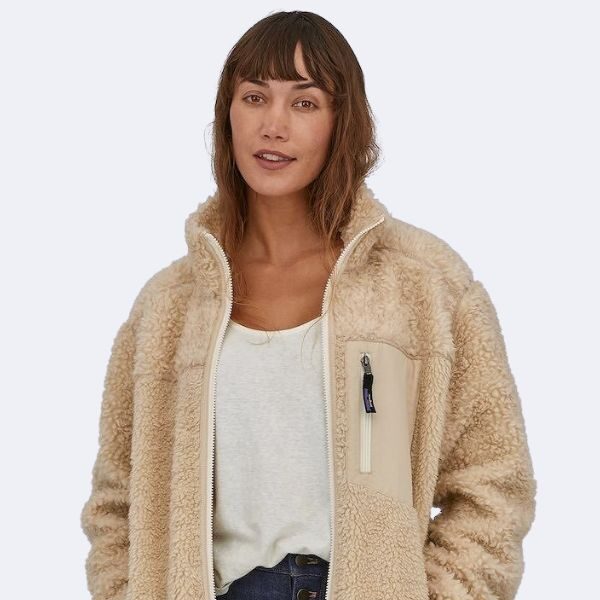
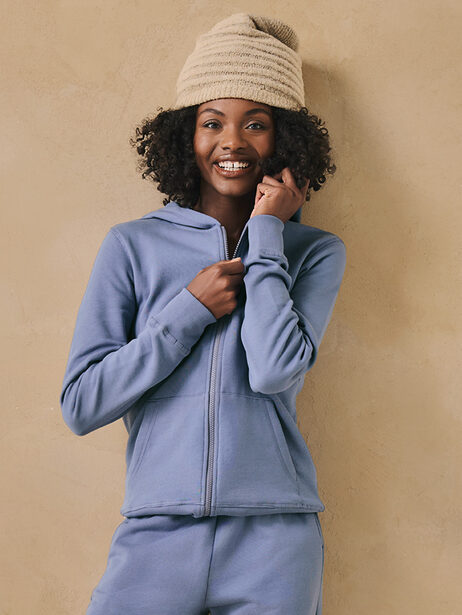
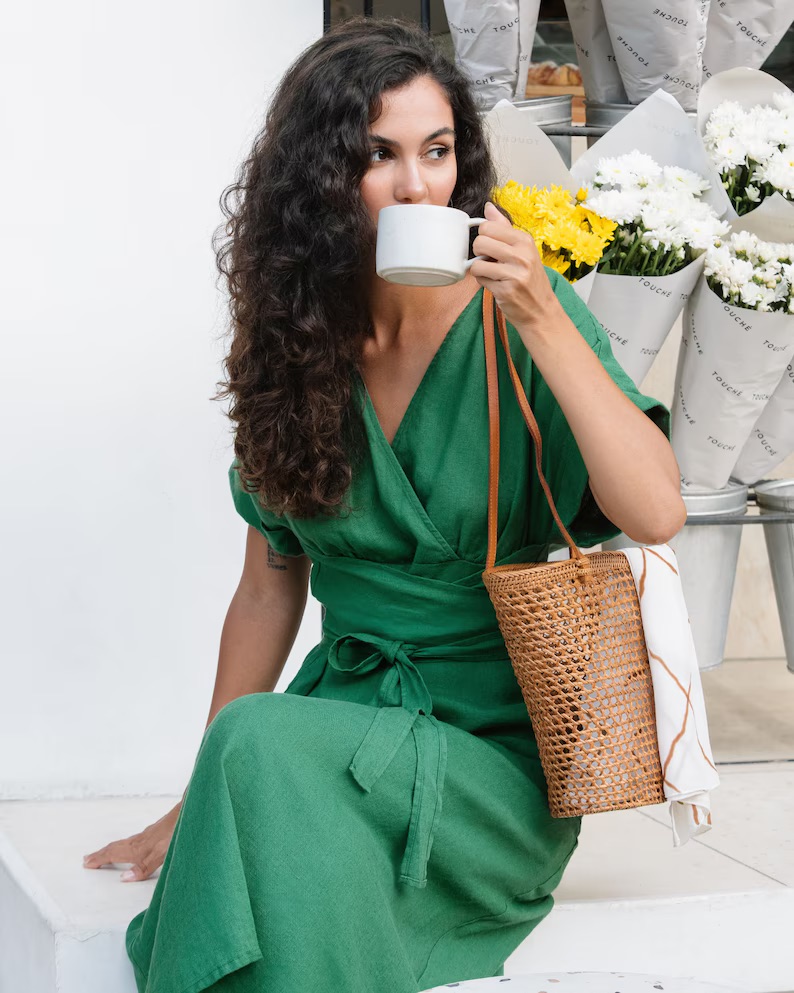
5) When it comes to home goods, you shop for accessible quality.
West Elm was named our readers’ favorite place to shop for a wide variety of home goods, at reasonable prices, while supporting increasing levels of sustainable and ethical sourcing. One note on West Elm — remember to use advanced filters to find pieces that have the most sustainable certifications. We were also excited to see that Avocado took the number two spot on your list; our team recently toured the Avocado factory in Southern California, and got to see the production of the brand’s zero-waste furniture collection. (And some previews of what’s to come, too — get excited!)
Coming in at number three on your list of favorites was Etsy, a frontrunner for the third year in a row. If you want a good place to get started, check out this roundup of our 99 favorite Etsy shops! The marketplace supports a move to more affordable and accessible retailers for sustainable wares.
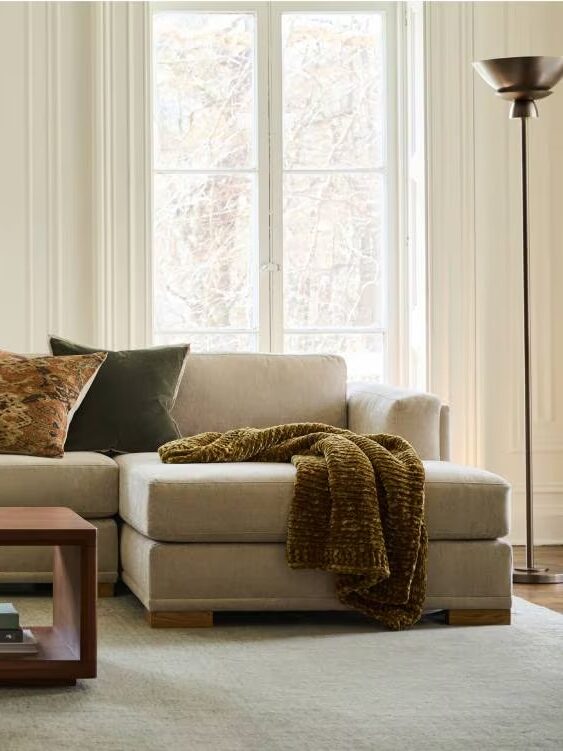
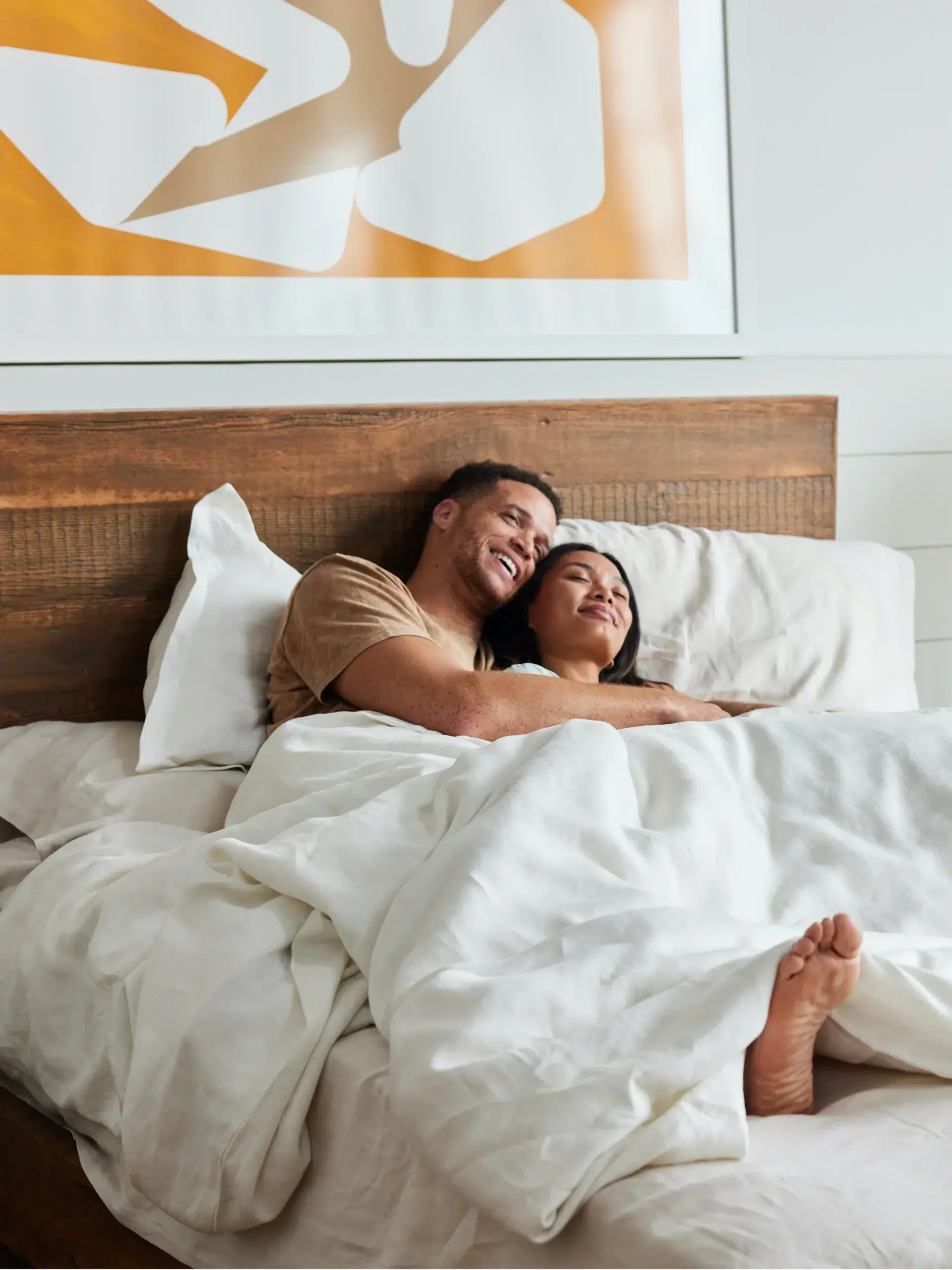
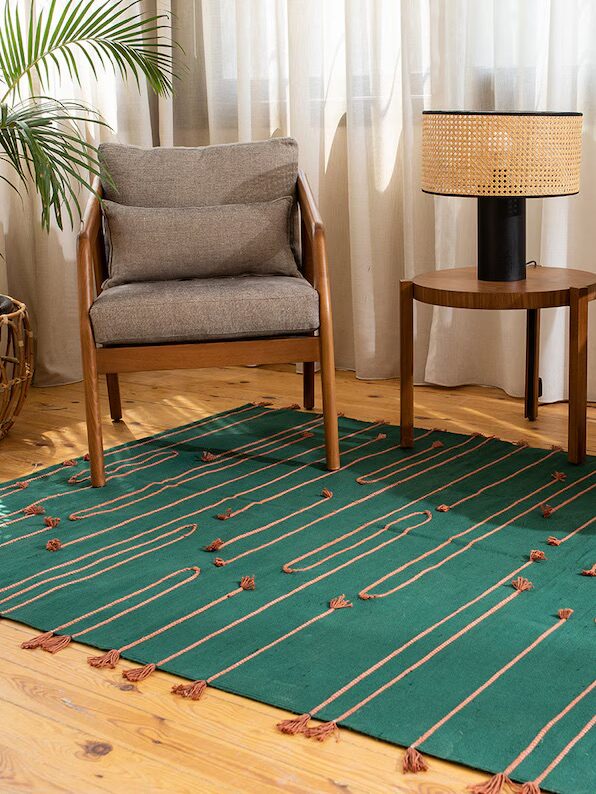
6) The best in clean beauty goes to ILIA.
But you still impressed us with how personal beauty is for each of you. This was the category with the most write-ins, from well-known drugstore brands down to small handmade skincare goodies (and some DIY in your own home!). Of the brands we selected for consideration, ILIA topped the charts again this year. We especially love its dewy Super Serum Skin Tint, which comes in 30 shades and offers SPF 40 coverage. OSEA was the second favorite, and cocokind followed closely behind — showing us that you all prioritize clean ingredients whether you have a big budget or a small skincare stipend.
You can see our reviews for each of these brands on The Good Trade — ILIA, OSEA and cocokind. We love them all!
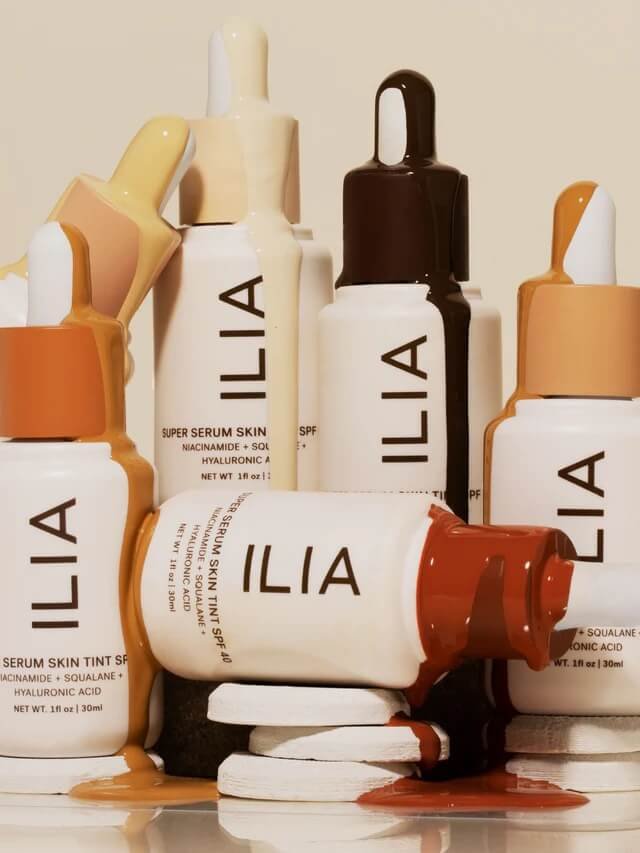
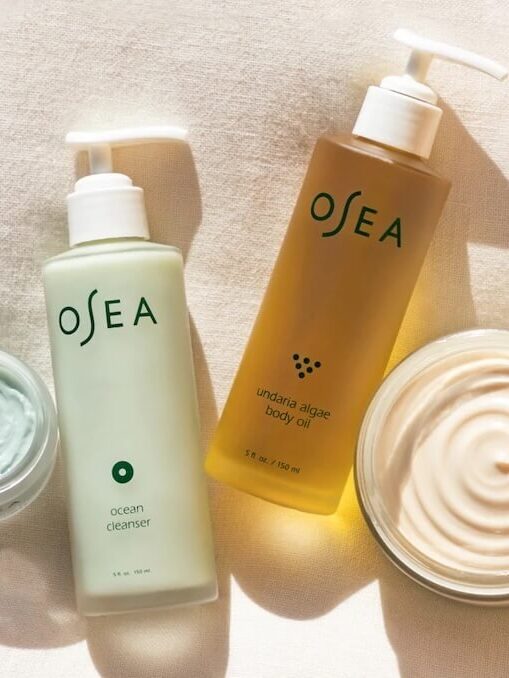
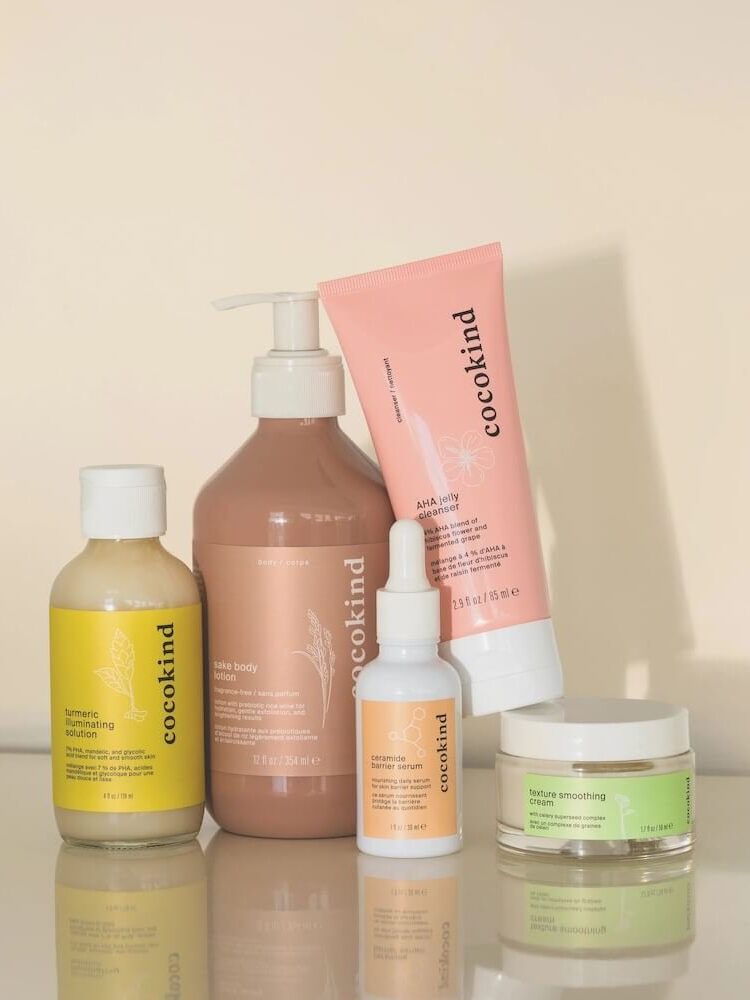
7) When splurging on sheets, our readers think these linens are worth every penny.
Your most recommended bedding brand was none other than Avocado. This is a reader fave thanks to the quality of its bedding, and the dedication the whole brand has to making sure everyone sleeps sound and snuggly.
Avocado’s bedding is made in India and features long-staple GOTS Organic-certified cotton, alongside both MADE SAFE and OEKO-TEX certifications. We especially love that the queen sheet sets start at $89, which is great for folks who want a long-lasting product that fits into their budget.
Avocado is also truly a one-stop shop for everything you need for a cozy bedroom, including mattresses, toppers, and protectors. (All of the mattresses are handmade in Avocado’s California factory!)
Notable write-ins included organic sets from Quince and Pact, once again showing that balancing affordability, nontoxic materials, and quality is the name of the game.
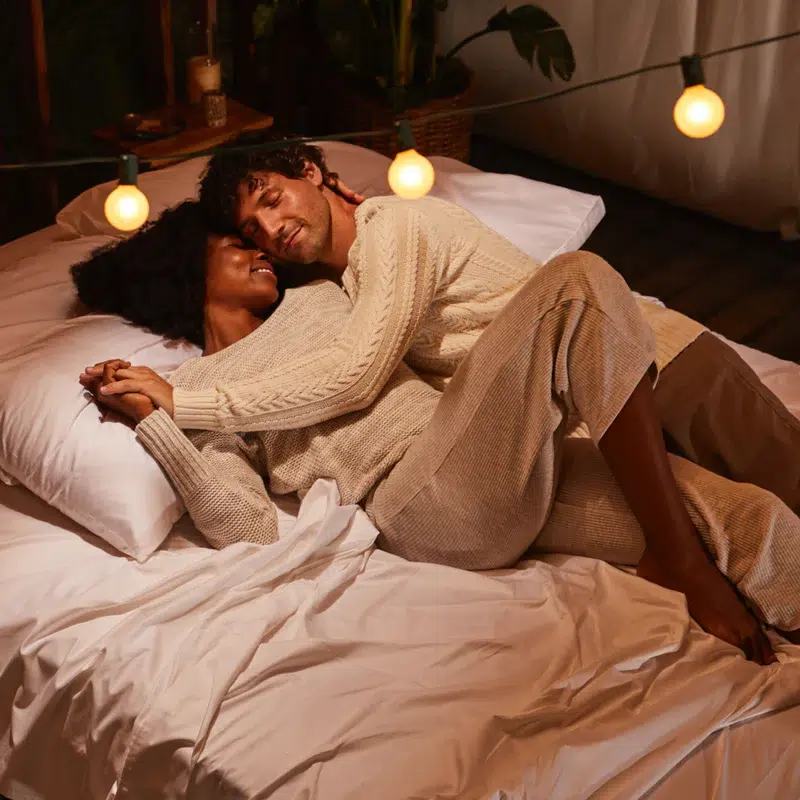
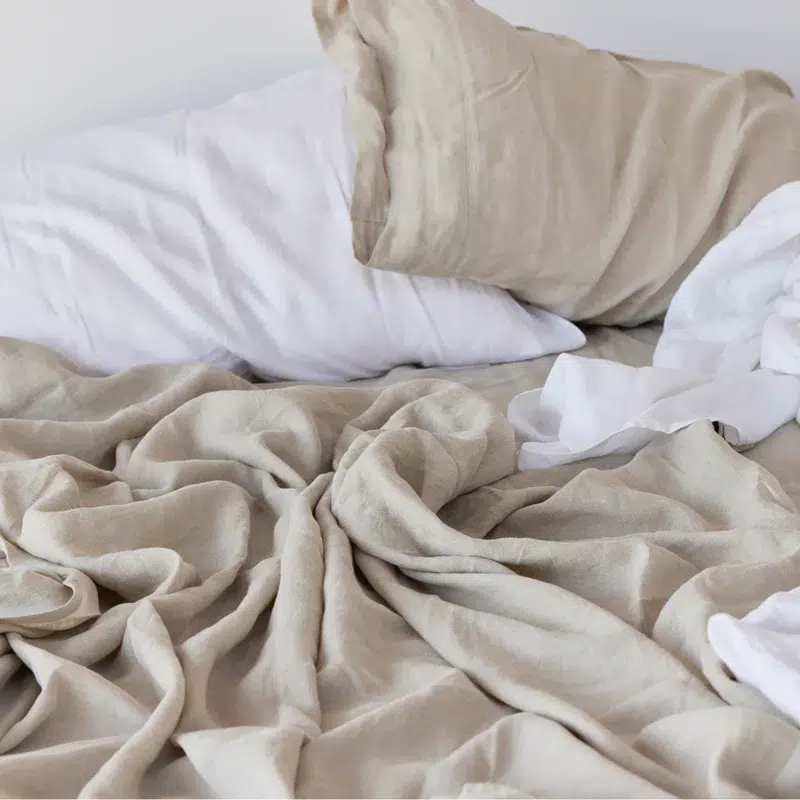
8) You don’t sacrifice comfort *or* cost when it comes to good undergarments.
The most recommended brand for organic underwear was Pact — organic, comfortable, and affordable. The brand offers a range of intimates, from bralettes to high-rise briefs (which I’m wearing right this moment ).
Notable mentions were Boody and Subset (formerly Knickey), both brands that our editors can personally attest to for their quality, natural materials, and longevity. For size and style inclusivity, readers shared Tomboyx as their top pick.
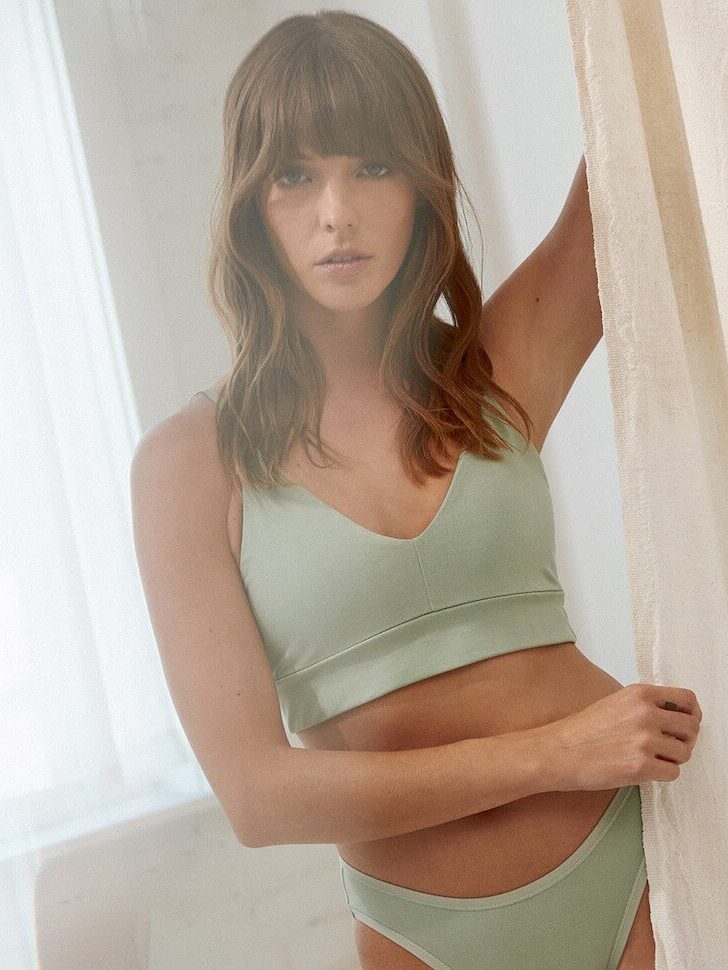
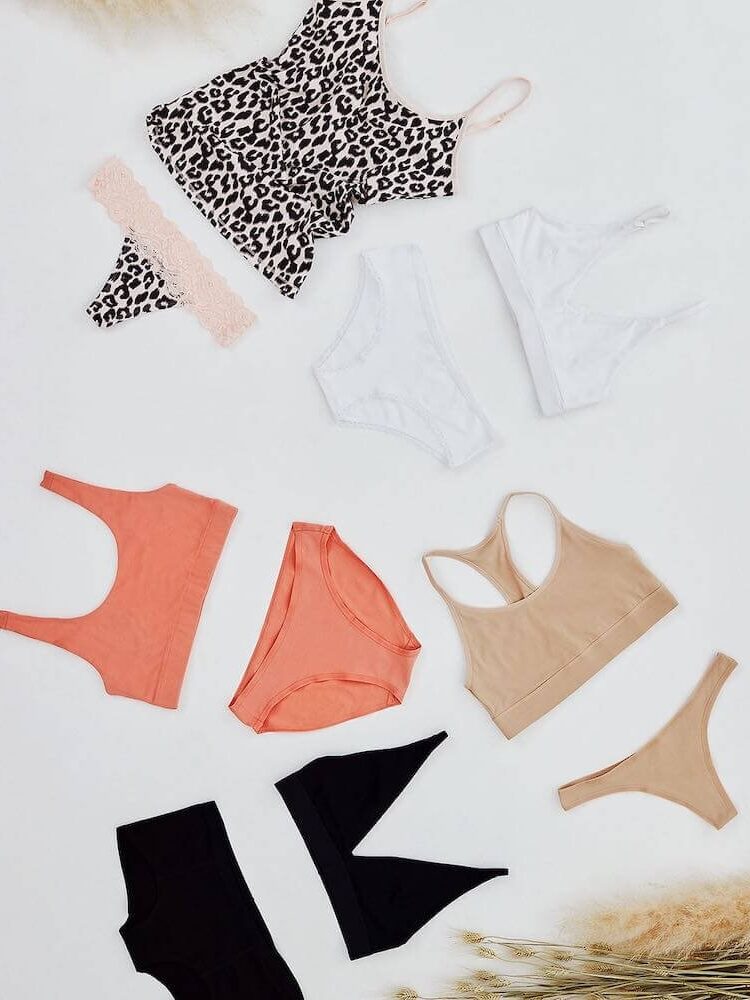
9) When it comes to sustainable sneakers you balance style and comfort — but are willing to invest a little more.
For the second year in a row, there was a close race for the top sustainable sneakers between Allbirds and Veja. Allbirds is well known for affordability and versatility, while Veja is known for its longevity and timeless style.
Runners-up were Cariuma and On — both brands known for their comfort. (We loved seeing how comfort continues to be a top priority for many of you this year!) Check out our firsthand review of On’s Cloudmonster 2 runner here — it really does feel like you’re running on clouds.
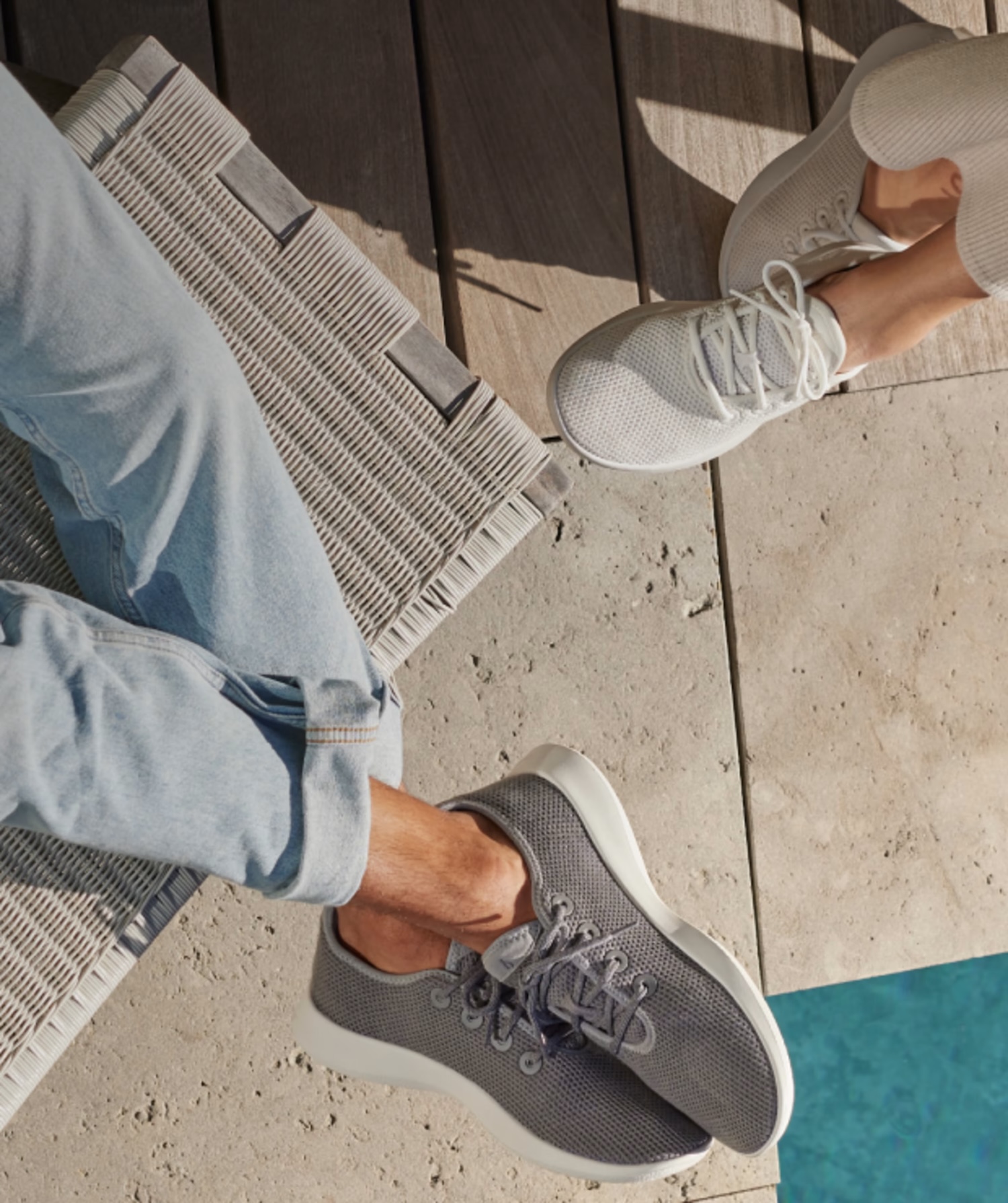
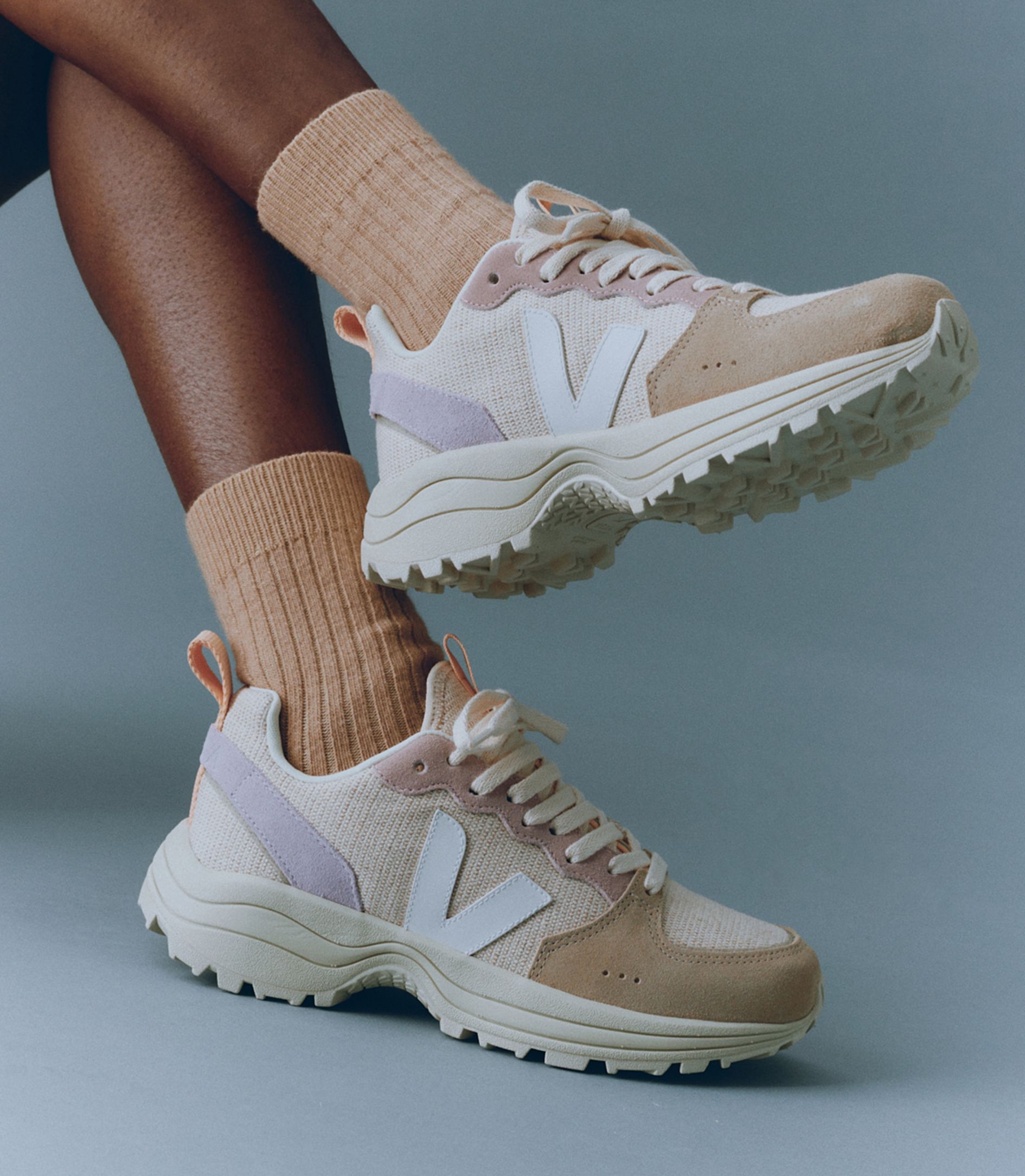
10) You want skincare and makeup to go hand-in-hand.
Cocokind topped the list of write-in responses in the skincare category, alongside beauty favorite ILIA, which tells us you’re looking for brands that can balance both clean skincare and light, natural makeup.
But moisturizing and protection are still top of the list — specific products you all recommended were cocokind’s Ceramide Barrier Serum, ILIA’s Super Serum Skin Tint, and OSEA’s body oil. We were also inspired by how many of you listed DIY and products made by small, local businesses! One reader noted their streamlined routine includes “jojoba oil for cuticles, and castille soap for body.” You can never go wrong with keeping it simple!
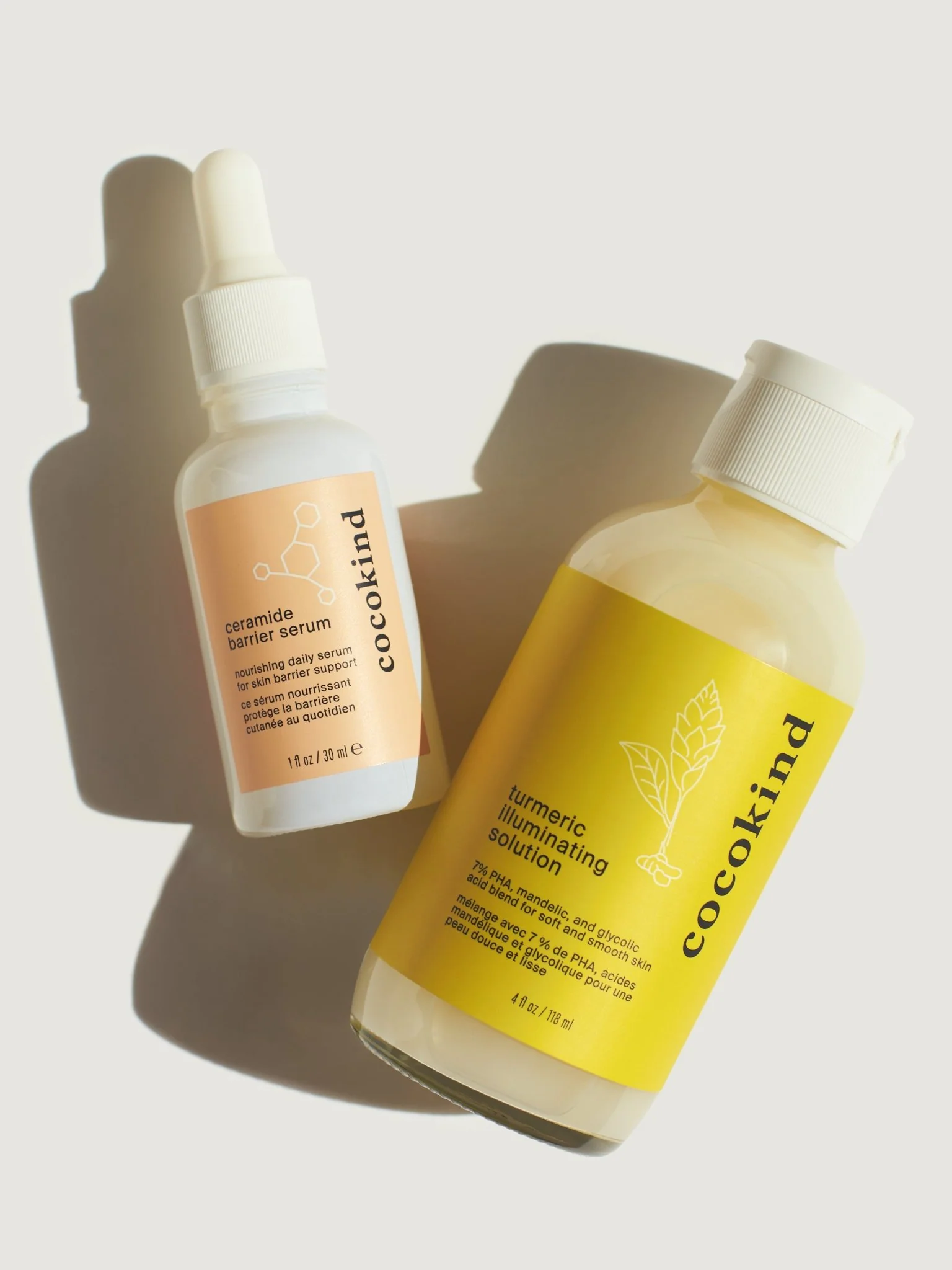
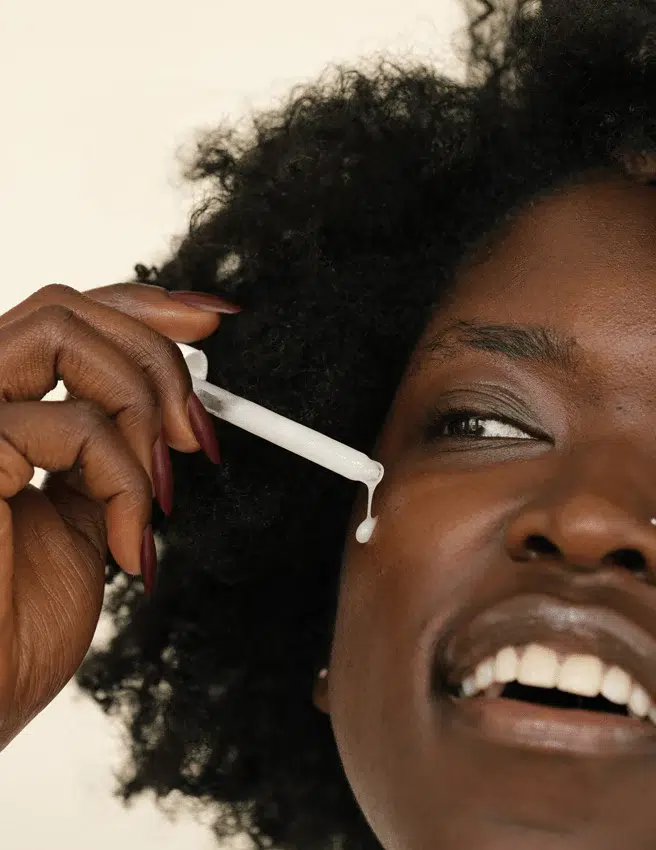
11) Our readers only like one brand more than a good pair of secondhand denim.
Even when readers did have a brand recommendation for denim, you often qualified “but secondhand!” Vintage and thrifted denim is too good — it’s well worn-in and fits like a glove — so we can’t fault you for that being your go-to for finding eco-friendly jeans. That being said, Everlane and Levi’s (especially secondhand) were the most-listed brand favorites for denim thanks to their affordability, durability, and wide range of size and style options from skinny jeans to slouchy denim.
We did see a number of smaller brands taking the stage in this year’s survey, some we’ve heard of and some we haven’t yet tested! You recommended Lucy & Yak, Rudy Jude, Agolde, Unspun, and Just Black Denim. Hiut Denim Co. came in as a made-to-order reco for our UK readers!
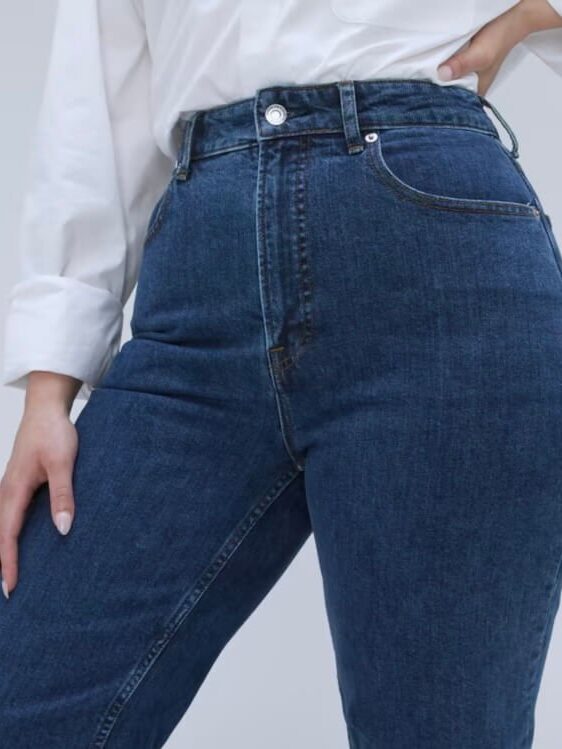
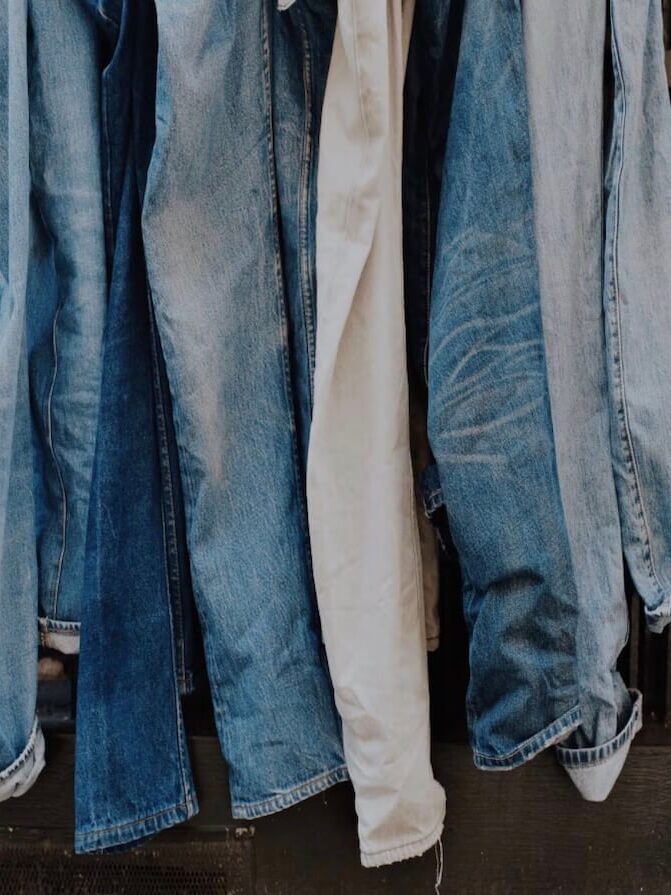
12) You’re leaders, not followers (of course you are!). But here are some great sustainability influencers to follow anyway).
When we asked for your favorite ethical fashion influencers, the majority of you told us you didn’t have a go-to account that you like to follow. But if you are in the social media space, the rest of our readers suggested so many great creators — here are the three that came up most frequently. (Be sure to hit follow!)
13) You want to give homemade goodies.
You love to shower your loved ones with unique and personalized homemade items — not surprising. But so many of you noted that you want only to gift experiences, time spent together, or consumables that leave a smaller footprint once they’re gone.
Most of you prefer to give homemade presents, experience gifts, and things like coffee, tea, or chocolate. We love how universally loved many of these items can be!
14) You want experience gifts…and also cozy consumables.
While handmade gifts did not make the top placement for items you want to *receive*, ephemeral experience gifts like subscriptions, event tickets, or other cultural activities did rank highly.
Coffee, tea, and chocolate came in at the number two most popular types of gifts you want to receive — taking the place of clothing and jewelry from last year. And fashion and home goods still rank near the top of your lists. It sounds like everyone just wants to cozy up and embrace some calm this holiday season. (If you’re still stuck, we do have a list of gifts for her and gifts for him, and your picks for the best jewelry shops were on Etsy and Mejuri.)
Overall, you may want to avoid gifting *or* requesting makeup and skincare products unless you know both parties understand each other’s routine well — most people already purchase the beauty products they love most for themselves. Readers also told us that robes, sweats, and slippers are low on their wishlists; our guess is that we all already have these cozy items after the last several years of hybrid/remote work.
Thank you, all, for sharing your insights with us and inspiring us as we head into 2025. We consistently share your feedback, notes of encouragement, and recommendations with each other in The Good Trade Slack channel. We learned even more than what we shared here, and we can’t wait to deliver you all the very best in sustainable products and responsibly sourced products in the new year.
Wishing you all a warm, safe, and loving conclusion to 2024, and offer a reminder to share kindness, grace, and empathy whenever you can. We all need it right now.
Emily McGowan She studied Creative Writing and Business at Indiana University, and has over ten years of experience as a writer and editor in sustainability and lifestyle spaces. Since 2017, she’s been discovering and reviewing the top sustainable home, fashion, beauty, and wellness products so readers can make their most informed decisions. Her editorial work has been recognized by major publications like The New York Times and BBC Worklife. You can usually find her in her colorful Los Angeles apartment journaling, caring for her rabbits and cat, or gaming. Say hi on Instagram!













Noodlemagazine Awesome! Its genuinely remarkable post, I have got much clear idea regarding from this post . Noodlemagazine
teskfw
Noodlemagazine I like the efforts you have put in this, regards for all the great content.
Hey there You have done a fantastic job I will certainly digg it and personally recommend to my friends Im confident theyll be benefited from this site
Businessiraq.com is more than just an Iraq business directory; it’s your strategic partner for navigating the Iraqi market. This platform provides comprehensive online business listings, while also delivering the latest Iraq business news and insightful analysis. Explore promising Iraq jobs, uncover valuable tender opportunities for procurement, and connect with local and international businesses seeking collaboration. Businessiraq.com facilitates market entry and fosters long-term growth for companies seeking to capitalize on the Iraqi economy.
As a groundbreaking platform, Businessiraq.com revolutionizes how businesses connect and operate in Iraq’s expanding marketplace. Through its meticulously curated Iraq business directory, the platform offers unparalleled access to thousands of verified companies, spanning diverse industries from oil and gas to construction and technology. The website’s comprehensive business news in Iraq section delivers real-time updates on market developments, policy changes, and investment opportunities, making it an indispensable tool for decision-makers. With its robust tender directory and extensive Iraq jobs listings, Businessiraq.com serves as a one-stop destination for professionals and organizations seeking growth opportunities. The platform’s online business listings feature sophisticated search capabilities, enabling users to find potential partners, suppliers, and clients with precision and ease.
Stay ahead of the curve in the Iraqi marketplace with Businessiraq.com. This invaluable online resource is your complete guide to the Iraqi business sector. Detailed online business listings allow for targeted networking and efficient market research. Access cutting-edge business news in Iraq, explore exciting Iraq job opportunities, and secure procurement contracts through the comprehensive tender directory. Businessiraq.com empowers businesses to thrive in the dynamic Iraqi environment.
Businessiraq.com, a leading Iraq business directory, empowers businesses with comprehensive online listings of Iraqi companies, crucial for effective networking and market research. Stay updated on the latest Iraq business news, discover lucrative tender opportunities, and explore exciting Iraq job prospects within the dynamic Iraqi economy. This essential platform connects local and international businesses, streamlining access to the Iraqi market.